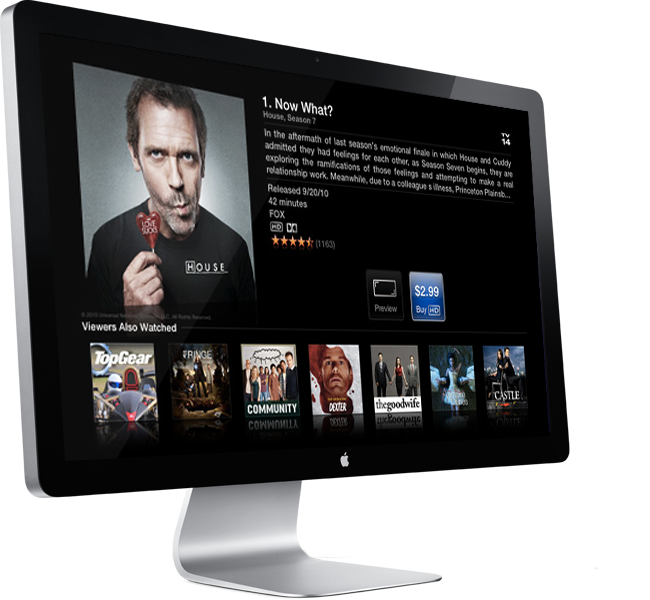Apple seen partnering with existing cable operators for 'iTV' content
Peter Misek with Jefferies presented his "what if" analyses related to content on the so-called "iTV" in a note to investors on Monday. In what he sees as the most likely scenario, Apple could gain access to non-exclusive content for its television set and forge deals with existing cable providers.
By potentially partnering with carriers and cable operators, Apple could enter the market on a level playing field with everyone else for content. With access to a variety of content through existing providers, as well as the content already available on the iTunes Store, Misek believes that Apple could package everything with a "superior user interface and ecosystem" and beat out the competition.
"We think that partnerships with carriers and MSOs are possible whereby they provide the video content," he wrote, "as they already have deals in place (at least to sell video over their own pipes), whereas Apple has to negotiate for new over-the-top distribution rights."
While partnerships with companies like AT&T, Verizon, Bell and Rogers, combined with the existing iTunes Store, are seen as the most likely option, Misek also presented three other directions Apple could potentially take. In one option, he said Apple could simply seed content, as Google does with its YouTube Original Channels.
In this scenario, Misek thinks Apple could select about 100 groups to create channels and provide upfront financing in exchange for a year of exclusivity. Given Apple's current clout in the entertainment industry with its iTunes Store, he believes Apple could target mainstream TV shows and movies with this method.
In another option, he said Apple could buy access to exclusive content, much as Netflix has done for the "House of Cards" program, and DirecTV has with its exclusive "NFL Sunday Ticket" package. With "headline deals," such as a rumored bid on the English Premier League rights, he thinks Apple would gain buzz.
But exclusive content deals for an Apple television could also open the company up to scrutiny from governments. He believes that antitrust concerns could limit exclusive content options for Apple.
The final possible scenario, as seen by Misek, is that Apple could become a Hollywood studio and produce its own content. But the analyst believes lower margins and higher risks would scare Apple away from that option, as the film and TV divisions of companies like Sony, Disney, Viacom and News Corp. have substantially lower margins than Apple.
Misek believes Apple's rumored entrance into the television market will be primarily to bolster the company's "halo effect," in which consumers buy into the Apple ecosystem and purchase its other products. He does not believe that an iTV with subscription revenue, as well as gross margins on the sale of HDTVs, would have much of an impact on the company's bottom line.
 Neil Hughes
Neil Hughes











 Mike Wuerthele
Mike Wuerthele

 Malcolm Owen
Malcolm Owen
 Chip Loder
Chip Loder

 William Gallagher
William Gallagher
 Christine McKee
Christine McKee
 Michael Stroup
Michael Stroup







